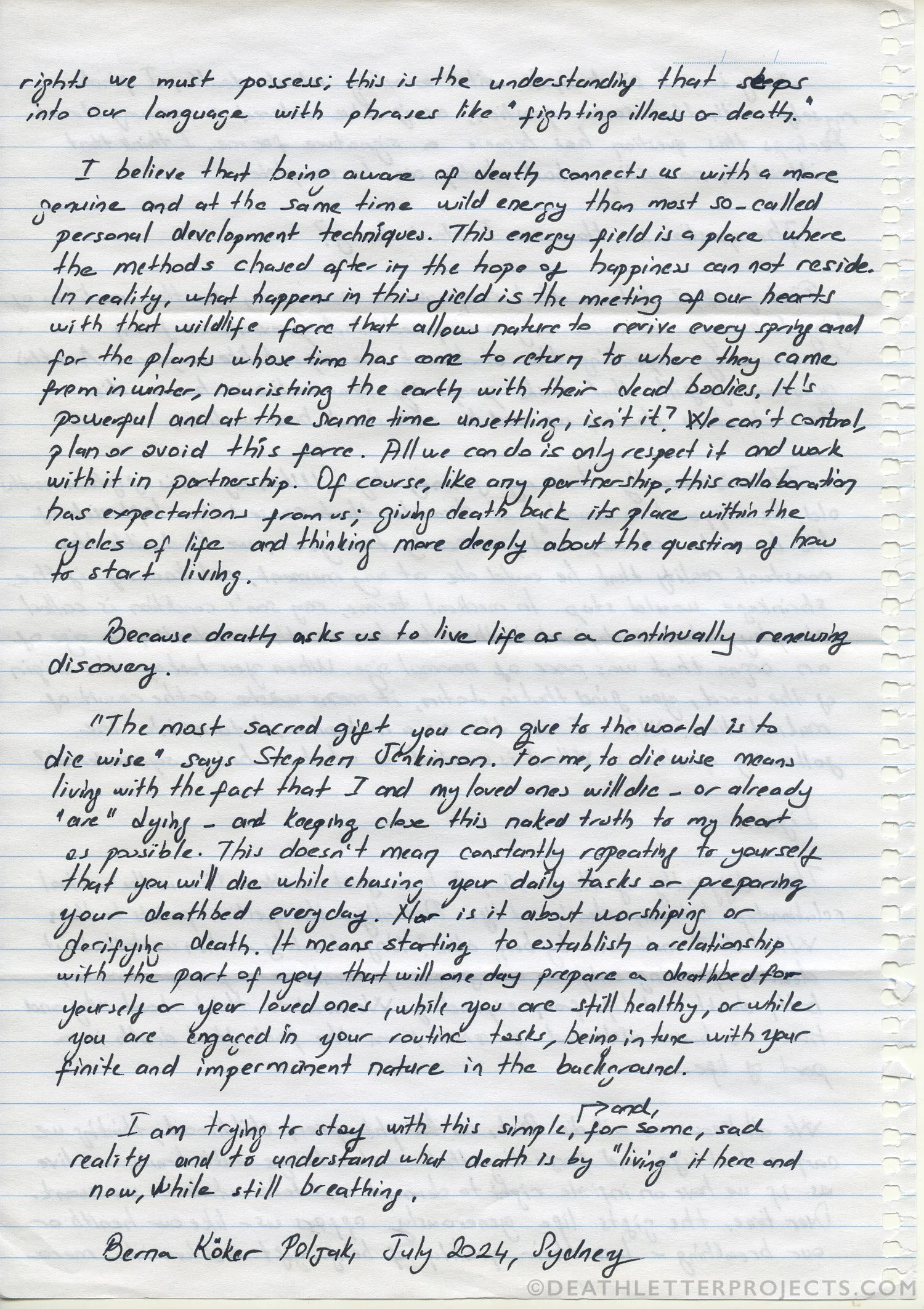Berna Köker Poljak | Death & Grief Doula
Every time I sit down to write something about death, I find myself with the same question, as if I've entered a one-way street. Perhaps this question has become a signature for me. I think that without it, no writing about death can be complete.
The question is: How can I start living?
First of all, I believe that confusion is necessary for the realities of dying to emerge. Because only a confused mind prevents us from continuously repeating the statements we repeat like a parrot.
And this question fulfils that task perfectly. How we live is how we die. To understand death, we need to understand how we live.
This is exactly where my journey began. When my son was fifteen months old, he suffered a neurological disorder that caused the left side of his brain to shrink, and for nearly two years, we lived with the constant reality that he could die at any moment, not knowing if the shrinkage would stop. In medical terms, my son's condition is called atrophy, which is defined in the literature as the reduction in size of an organ that was once of normal size. When you look up the origin of the word, you find that in Latin, it means waste or the result of malnutrition. When I use this as a metaphor, it turns into the following question: What is wasted or what is being squandered?
Life...
The difficulty of the question I have just written lies in the mutual relationship between death and life. Actually, the question points to this: What do I understand by being alive?
Unfortunately, when we talk about death, focusing only on our fears prevents our perspective on both death and life from expanding. We need to think about why and how we have distanced ourselves from the fact that death is a part of life.
We all know we will die. But, as taught from childhood, thinking we can control life and forgetting that we are beings with limits, we live as if we have an infinite right to demand and take whatever we want. Over time, the gifts life generously offers us—like our health or our breathing—lose their quality of being gifts and turn into mere rights we must possess; this is the understanding that seeps into our language with phrases like "fighting illness or death."
I believe that being aware of death connects us with a more genuine and at the same time wild energy than most so-called personal development techniques. This energy field is a place where the methods chased after in the hope of happiness cannot reside.
In reality, what happens in this field is the meeting of our hearts with that wildlife force that allows nature to revive every spring and for the plants whose time has come to return to where they came from in winter, nourishing the earth with their dead bodies. It’s powerful and at the same time unsettling, isn't it? We can’t control, plan or avoid this force. All we can do is only respect it and work with it in partnership. Of course, like any partnership, this collaboration has expectations from us; giving death back its place within the cycles of life and thinking more deeply about the question of how to start living.
Because death asks us to live life as a continually renewing discovery.
"The most sacred gift you can give to the world is to die wise" says Stephen Jenkinson.
For me, to die wise means living with the fact that I and my loved ones will die—or already ‘’are’’ dying—and keeping close this naked truth to my heart as [much as] possible.
This doesn’t mean constantly repeating to yourself that you will die while chasing your daily tasks or preparing your deathbed every day. Nor is it about worshiping or glorifying death. It means starting to establish a relationship with the part of you that will one day prepare a deathbed for yourself or your loved ones, while you are still healthy, or while you are engaged in your routine tasks, being in tune with your finite and impermanent nature in the background.
I am trying to stay with this simple and, for some, sad reality and to understand what death is by "living" it here and now, while still breathing.
—Berna Köker Poljak (2024)
Editor’s note: Originally from Turkey, Berna received her first Death Doula training in 2018 after moving to Australia and has been working as a Death and Grief Doula since then. In addition to her doula service, she is also an author, podcaster, Australian Outreach Coordinator of the movie The Last Ecstatic Days, and founding director of Wisdom of Grief and Death Platform in Turkey.
The Death Letter Project welcomes your comments and feedback. Please feel free to leave a comment on our Facebook page or alternatively submit a message below.


